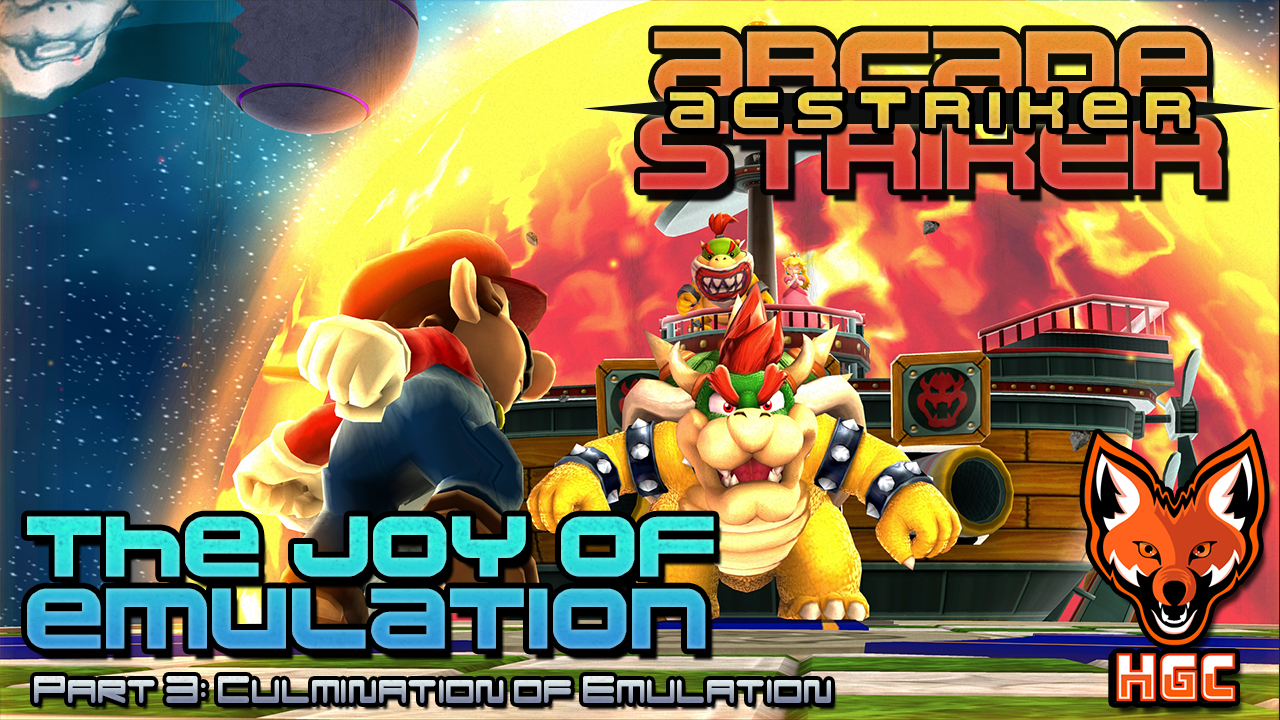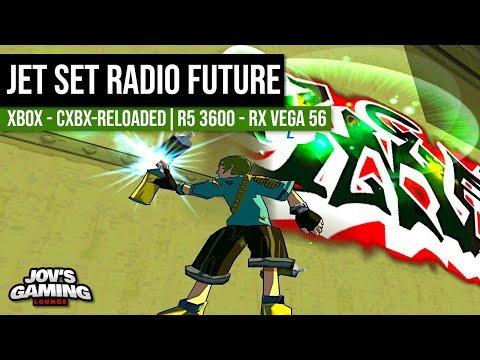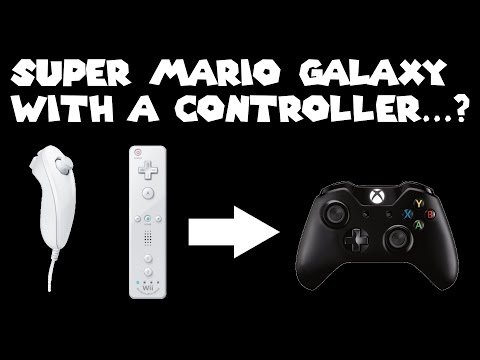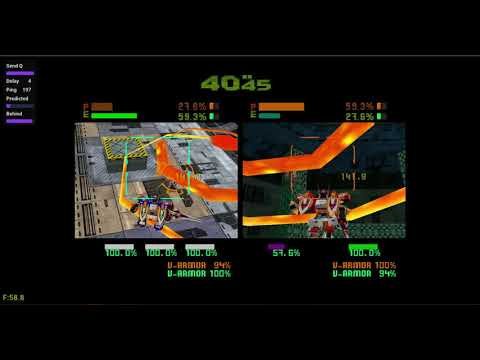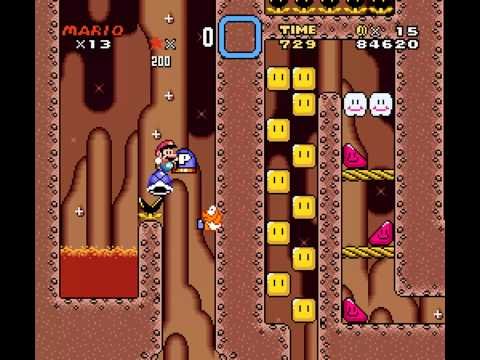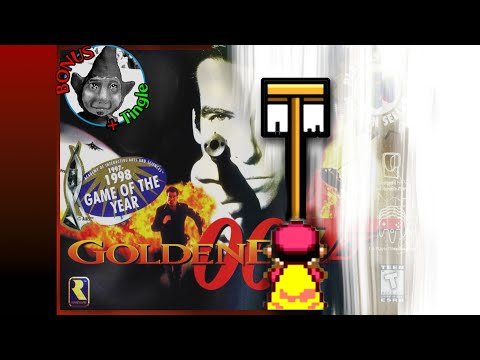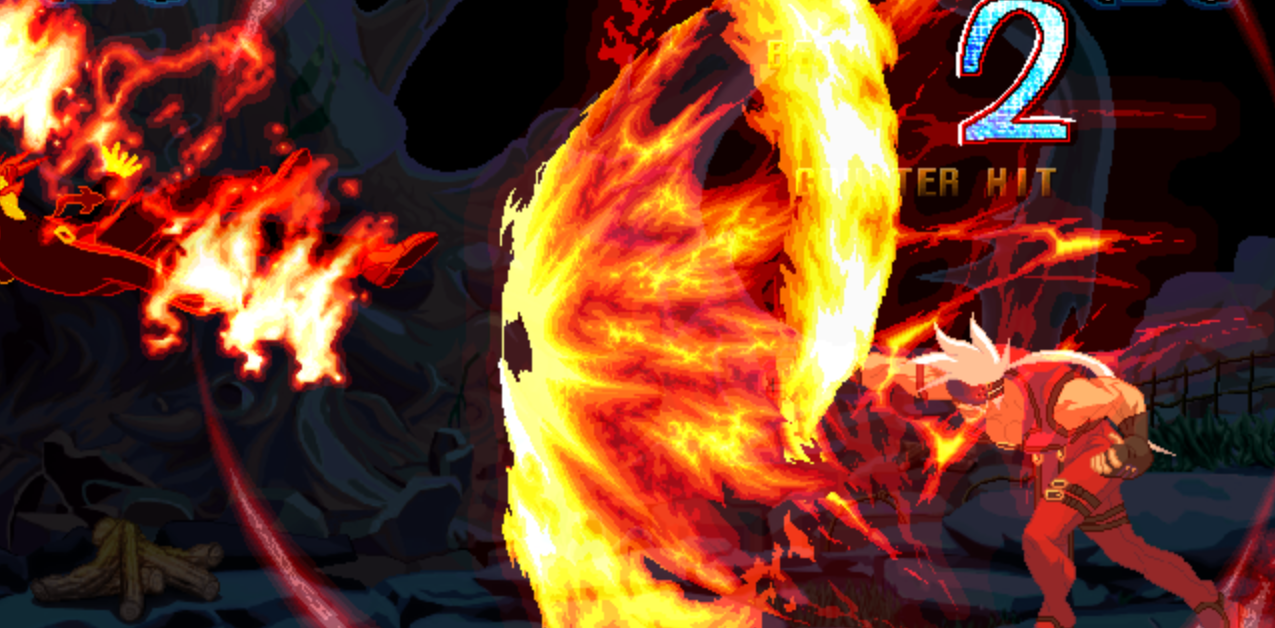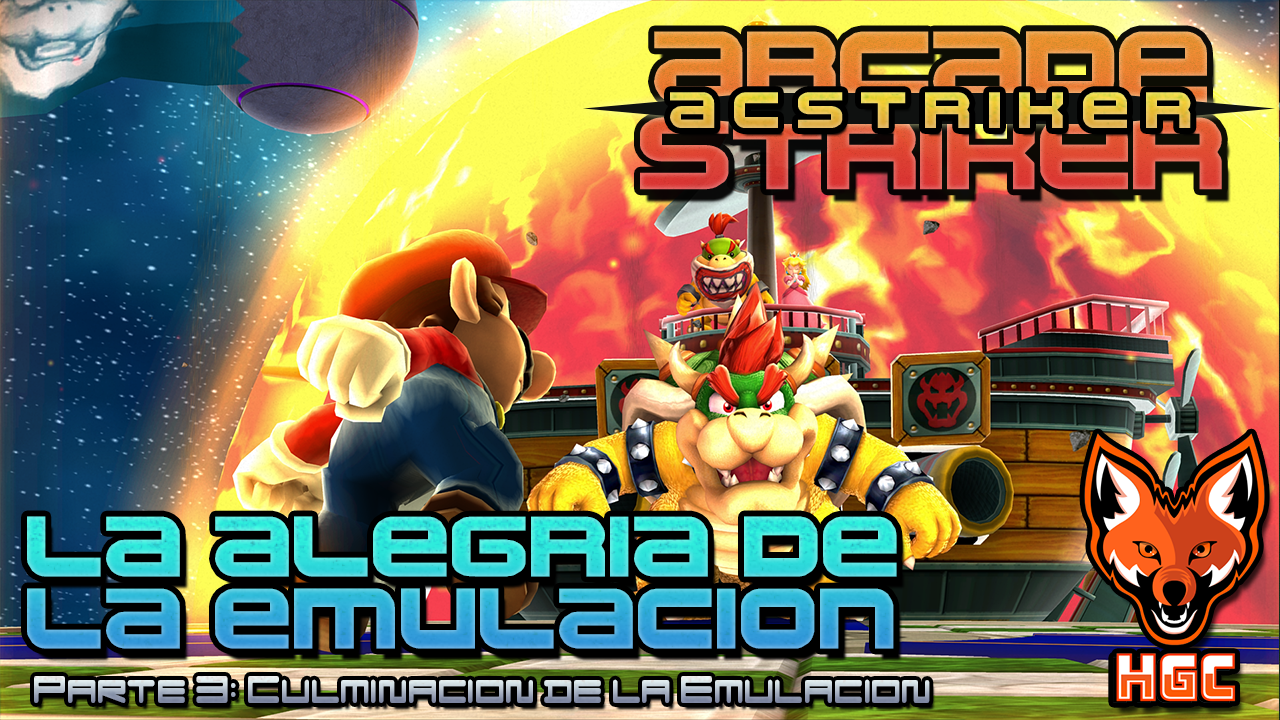Source for the picture used in the thumbnail
This is a continuation of the previous "The Joy of Emulation" posts, Part 1 and Part 2 (originally intended to be a single huge post), so if you haven't read them, make sure that you do so that you understand the context and then read this one :)
- Links to the five interviews (sources of the quotes that will be used) are avaliable below; huge thanks to these emulator developers for having given me the chance to interview them two years ago and providing these valuable insights on this process:
- MetalliC - DEMUL emulator (SEGA Dreamcast, NAOMI, NAOMI 2) developer - Interview from May 30, 2020
- Luke Usher - Cxbx-Reloaded emulator (Original Xbox) developer - Interview from April 30, 2020
- skmp and ZNullptr - NullDC and Reicast emulator (SEGA Dreamcast, NAOMI) developers - Interview from April 17, 2020
- JMC47 - Dolphin emulator (Nintendo Gamecube, Wii) Progress Report Writer and Netplay Contributor - Interview from July 07, 2020
- LuigiBlood - Nintendo 64DD and Satellaview Researcher; helped contribute support for these in specific emulators - Interview from May 25, 2020
The Culmination of Emulation
If there's anything that emulation gets to help a lot with in an official way, is to allow access to those games from old consoles without having to remake or port the entire game, which is both beneficial for budget and the idea of making a single emulator compatible with other games, meaning that it can be reused for other titles. One particular case is how the Xbox consoles provide backwards compatibility with older titles, as its all done through emulation, which while hard, allows for games that wouldn't receive new ports to be playable on your shiny, new console; sometimes even with framerate and resolution boosts!
Sonic Unleashed (Xbox 360), a game known for being very heavy on the console with framerate dips, running in backwards compatibility on the Xbox Series X at an upscaled resolution and locked 60fps framerate.
And on the cases where games are left stranded on a certain console due to licensing issues that would cause problems for the game to be re-released, developers or publishers that are extinct, games on complex consoles, or simply when developers or publishers can't or won't care, community-developed emulators are often pitched as the definitive way to play those games, as their amount of features, compatibility and enhancements make the games accessible and even better looking than before; sometimes even better than certain games official re-releases (Konami, nobody is going to forget what you did with Silent Hill HD Collection)
Jet Set Radio Future (Xbox), a beloved game that hasn't received a modern port since its release in 2001 (one reason likely being the licensed songs) and isn't even supported in Xbox backwards compatibility, running on CXBX-Reloaded at upscaled resolution
And that's not to say how emulators have contributed with making mod and translation development much faster as you have your resources to modify and test your changes in your PC instead of having to build and send the game to your console or flashcart just to see if you didn't break anything or if everything worked out properly. It is really cool to see this be the case not just for popular games (because of course romhacking for stuff like Super Mario 64 has really gone places since its roots thanks to the avaliability of emulators alongside modding tools), but also for obscure games and untranslated Japan-exclusive titles that would have been left as-is forever if it wasn't for emulators and the efforts of the people translating them as hacks for those games.
I’ve made the English translations of Mario Artist Paint Sutdio, Talent Studio and Polygon Studio because I enjoyed them so much that I wanted to make them even more accessible. I’ve just released the disk version of the English translation of F-Zero X Expansion Kit, which was done by Zoinkity, so I just updated the translation based off his work.
One thing that I wanted to insist with 64DD emulation is that I wanted some way for people to share their content, so I had that in mind sever since I made 64DD emulation code for Project64. I had a bunch of devs tell me in what way I could handle 64DD saves, but a lot of them just didn’t satisfy me so I implemented it the way I wanted; except for paraLLEl-n64 where I didn’t, which is one of the reasons why I’m not proud of it.
I finally made 64DD MFS Manager after a long time with the intention to make something easy to use on how to import / export user content.
LuigiBlood
(Context for the above is that not only the three Mario Artist games, one of which is a spiritual sequel to Mario Paint, are now playable in English, but the 64DD MFS Manager tool he's talking about can be used to import and export content made from those games, as well as the car and track editor bundled F-Zero X Expansion Kit)
It’s been fun and rewarding to see more and more games working over time, and this year is looking to be a very positive year, we’re getting close to having 10% of the game library playable.
Cxbx-Reloaded has developed to the point that it’s even helped with the game modding scene: neodos uses Cxbx-Reloaded to help develop/test mods for Jet Set Radio Future, and it’s amazing to see our work used in such ways.
Luke Usher
https://twitter.com/neodos_/status/1131605121778032645?lang=es
- neodos_
Emulators also often allow support for certain console peripherals which aren't really seen in official re-releases, like the neGcon and Light-Guns for the PS1, the Link Cable and e-Reader for GBA, which allows for analog steering in early PS1 games (Wipeout XL, Ridge Racer) and light-gun games to be playable with a mouse, multiplayer and emulating e-Reader features on GBA games that allow it. But you know, the cooler thing is how you can remap every button and stick from the original controlelr into any way you want, which is good for personal preferences and, in the case of Wii games through Dolphin, allows playing some games that use motion controls with a gamepad. Not to mention as well how, once again, sometimes emulators are already doing such a huge favor with their existence with the incredibly obscure game hardware they support.
[...] There are so many unique hardware platforms developed in the world during past decades, and it is fun for me to work and learn something new and interesting (that may be useful for others too). I’m also there kind-of like the “Everything early 00’s SEGA” guy, so everything NAOMI, SystemSP, etc-related which was dumped like the last 7 years was “passed through my hands” 😉
MetalliC
And on the note of arcade games, I already mentioned how most of them never were ported to other platforms so emulation is the only way to play them outside of real hardware, but there's also cool kind of things that can be done either through the addition of emulation or by certain features that the hardware had. For example, being able to record your playthroughs as input files in MAME and FinalBurn Neo to watch later, the ability to play online through netplay in emulators like Mednafen, Dolphin, Fightcade (which itself included support for FBNeo and Flycast emulators), and even specifically modified builds of emulators to support online with specific games, like Slippi with its rollback netcode for Super Smash Bros Melee. With how much it takes to develop a functional and rock-solid netplay function for ANY emulator, the amount of work and testing done just to get results like this is something that has to be appreciated.
Personally, my most tested/worked on component has to be netplay: It’s what brought me into the emulator. I literally put a bounty (and paid it out) on Wii Remote support on netplay!
[...] In terms of technology though, Slippi itself and Melee Rollback is essentially an emulation miracle and I have no idea how they pulled it off, and the Slippi team are very knowledgeable on Dolphin.
JMC47
So basically you can easily record demos without a huge filesize, play online in games that never supported online officially, and even use emulators that support demo playback feature with special tools in order to make specially crafted demos with very precise or even outright impossible inputs for humans to do in order to make theoretically perfect runs, glitch-exploiting runs that cause incredible things to happen, or just to make a rather entertaining playback that makes an otherwise infamously difficult game a complete joke.
You might have heard of these kind of gameplays/runs. They are called Tool-Assisted Speedruns...more often known as their acronym: TAS.
(And no, these don't constitute cheating as long as they aren't passed off as human-played replays; though this is easier said than done with how certain things are literally impossible to do for an human in either such a perfectly timed way...or to be done at all)
It also reminds me of how curious it is that speedrunning and glitches can also be a crucial form of playtesting these emulators as how some of these might require specific game or hardware quirks to be emulated properly in order to be reproduced. It does sound weird about the idea of "glitches that DON'T happen in an emulator"...but that not only makes it less desirable or accurate for speedrunning, but it also shows a hole in the accuracy of the console emulation itself.
Being a speedrunner and a glitch hunter actually gave me a lot of advantages for testing in emulation, ecause some things I’d naturally put together in my head as being related were things that other people wouldn’t realize or notice. Deducing ways to reproduce bugs or potential causes is a big thing with actually fixing bugs, even if I had no real idea on the actual cause of the bug or what the emulator was doing.
JMC47
My Current Conclusion on Emulation
While this is definitely a bit of a "bite-sized" piece on everything I could talk or research about emulation, it certainly does get the main bullet points explained: Emulation is incredible for preservation and accessibility, but it can be hard to use at times (let alone actually develop). However, the benefits can go far beyond just running the games thanks to convenient options like control remapping, not having to juggle between memory cards, and the use of savestates...and this is just some of the basic features you'd expect on an emulator nowadays.
As I explained not too long ago, improved resolution, texture packs for higher-resolution textures or even altering the appearance of the game, online, recording replays (and allowing for the existence of TAS)...so many of these things are made incredibly convenient at the palm of our hands just from opening a window, picking a game and letting us go wild with it. And honestly...I really consider that emulation, as well as emulator developers, are quite underappreciated nowadays. Emulation testers, either the developers themselves, someone that's part of the team (but not a developer) or even just people that test it on their own and report to the staff, are the people that go through most of the bumps to spot errors and seek a fix for them. This is the case with one of the main writers for every Dolphin Progress Report in the website: JMC47.
Being a speedrunner and a glitch hunter actually gave me a lot of advantages for testing in emulation, ecause some things I’d naturally put together in my head as being related were things that other people wouldn’t realize or notice. Deducing ways to reproduce bugs or potential causes is a big thing with actually fixing bugs, even if I had no real idea on the actual cause of the bug or what the emulator was doing.
My lack of technical prowess is part of what landed me on the blog. I’m actually more toward a user than an emulator developer, so I was kind of the bridge between users and devs. So I’d take dev explanations, they’d break them down a bit, and I’d write it in my own way that I could understand and have them review it until it was actually factually correct. My favorite being the article on Dynamic BATs and Star Wars: The Clone Wars.
JMC47
Of course they get the reflectors on them when some big development happens...but for the most part I'd say that its because it became such a normalized thing to see nowadays, as in "hey this is emulated" or "hey use this emulator", and while that makes sense, sometimes it feels like people don't realize that these are such impressive and important pieces of software, and instead of being recognized like inventors...they get berated with requests for insignificant features (or features that are not trivial to implement), specific incompatibilities, or any other petty reason for spitting on the face of what I consider talented developers that deserve respect. And in any case, it is an understatment that many of these emulator developers have learned a lot of stuff during their work, and/or have become proud of what they have done up to this point.
[...] This has been only possible through works of several generations; just like our work will hopefully be used by the adults of tomorrow and hopefully remain as a beacon of happiness long after I’ve perished from this life.
Can’t ask for anything more, but otherwise, my life is complete.skmp
Thanks to DEMUL, I’ve learned how fun and efficient teamwork can be. Thanks to MAME, I’ve learned how non-big teams might achieve great results in research and preservation of gaming and computer history, using only personal resources/funds and time, with no begging for donations/patreons/bounties/etc like some so-called modern “emulation” projects do.
MetalliC
I think I need to thank my partner for putting up with me working on this project, she’s been very supportive; and of course I’d like to thank our users too.
Luke Usher
This is probably a sappy special thanks, but in the end I really want to thank Nintendo and their developers for the games they put out during my childhood. As much as people say gaming rots the brain, games like Super Mario 64 and Yoshi’s Island inspired my creativity and got me interested in game development and understanding game design.
The thing that keeps me in emulation is that I know some of these games that aren’t as well known or loved are a cherished part of someone’s history. And if they turn to the emulator to relive their past, I want it to work for them. Not just Nintendo though, but all game developers for creating these worlds. I remember loving Mario 64 so much I’d cut out my own stars and hide them around the house.
JMC47
And just by chance if someone is still thinking deep "Eh, emulation isn't that big of a deal, go jump off a cliff" or "IT'S PIRACY AND ITS ILLEGAL", even after what I've just talked about...then just watch this. And then you'll realize how many things that we have for given might as well never have existed in our lives because we were born the wrong year...and even eventually they would vanish anyways after so many years.
(But if you do agree with what I've explained...its still a great video, so I would recommend you to watch it anyways 😎)
So...anyways.
Long live emulation!
Thanks to all emulator developers!!
And I hope to see you next time! Thanks for reading!
super bonus bonus - today's bonus image
Guilty Gear XX Accent Core Plus R is still a very, VERY fun game. Probably one of the few fighting games I still like to play actively online when someone asks me for it because of the fun gameplay and rollback netcode being so good.
Oh, and I ended up putting this one a bit later than I wanted because of stuff I had to deal with recently. But lets see if I can show up more often again :)
Spanish translation with DeepL. All screenshots were captured by myself.
Español
Fuende de imágen usada para fondo de la portada
Esta es una continuación de las anteriores Parte 1 y Parte 2 de La alegría de la emulación (que originalmente iba a ser un único y enorme post), así que si no los has leído, asegúrate de hacerlo para que entiendas el contexto y luego lee este :)
- Los enlaces a las cinco entrevistas (fuentes de las citas que se utilizarán) están disponibles a continuación; muchas gracias a estos desarrolladores de emuladores por haberme dado la oportunidad de entrevistarlos hace dos años y por proporcionarme estas valiosas palabras sobre el proceso de desarrollo:
- MetalliC - Desarrollador del emulador DEMUL (SEGA Dreamcast, NAOMI, NAOMI 2) - Entrevista del 30 de mayo de 2020
- Luke Usher - Desarrollador del emulador Cxbx-Reloaded (Xbox original) - Entrevista del 30 de abril de 2020
- skmp y ZNullptr - Desarrolladores del emulador NullDC y Reicast (SEGA Dreamcast, NAOMI) - Entrevista del 17 de abril de 2020
- JMC47 - Escritor de informes de progreso y colaborador de Netplay del emulador Dolphin (Nintendo Gamecube, Wii) - Entrevista del 07 de julio de 2020
- LuigiBlood - Investigador de Nintendo 64DD y Satellaview; ayudó a contribuir al soporte de estos en emuladores específicos - Entrevista del 25 de mayo de 2020
La Culminación de la Emulación
Si hay algo en lo que la emulación llega a ayudar mucho de manera oficial, es en permitir el acceso a esos juegos de consolas antiguas sin tener que rehacer o portar el juego completo, lo cual es beneficioso tanto para el presupuesto como para la idea de hacer un solo emulador compatible con otros juegos, lo que significa que puede ser reutilizado para otros títulos. Un caso particular es el de la retrocompatibilidad de las consolas Xbox con los títulos más antiguos, ya que todo se hace a través de la emulación, que aunque es difícil, permite que los juegos que no recibirían nuevas adaptaciones puedan ser jugados en tu nueva y reluciente consola; a veces incluso con aumentos de framerate y resolución.
*Sonic Unleashed (Xbox 360), un juego conocido por ser muy pesado en la consola con caídas de framerate, funciona en retrocompatibilidad en la Xbox Series X con una resolución mejorada y un framerate bloqueado de 60fps.
Y en los casos en los que los juegos se quedan varados en una determinada consola debido a problemas de licencias que causarían problemas para la reedición del juego, desarrolladores o editores extintos, juegos en consolas complejas, o simplemente cuando los desarrolladores o editores no pueden o no quieren preocuparse, los emuladores desarrollados por la comunidad se presentan a menudo como la forma definitiva de jugar a esos juegos, ya que su cantidad de características, compatibilidad y mejoras hacen que los juegos sean accesibles e incluso más bonitos que antes; a veces incluso mejor que las reediciones oficiales de ciertos juegos (Konami, nadie va a olvidar lo que hicisteis con Silent Hill HD Collection)
Jet Set Radio Future (Xbox), un juego muy querido que no ha recibido un port moderno desde su lanzamiento en 2001 (una de las razones probablemente sean las canciones con licencia) y que ni siquiera está soportado en la retrocompatibilidad de Xbox, funcionando en CXBX-Reloaded a una resolución mejorada.
Y eso por no hablar de cómo los emuladores han contribuido a hacer el desarrollo de mods y traducciones mucho más rápido, ya que tienes tus recursos para modificar y probar tus cambios en tu PC en lugar de tener que construir y enviar el juego a tu consola o flashcart sólo para ver si no has roto nada o si todo ha funcionado correctamente. Es genial ver que esto ocurre no sólo con los juegos populares (porque, por supuesto, el romhacking de cosas como Super Mario 64 ha llegado muy lejos desde sus orígenes gracias a la disponibilidad de emuladores junto con las herramientas de modding), sino también con los juegos oscuros y los títulos exclusivos de Japón no traducidos que se habrían quedado tal cual si no fuera por los emuladores y los esfuerzos de la gente que los traduce como hacks para esos juegos.
He realizado las traducciones al inglés de Mario Artist Paint Sutdio, Talent Studio y Polygon Studio porque me gustaron tanto que quise hacerlos aún más accesibles. Acabo de publicar la versión en disco de la traducción al inglés de F-Zero X Expansion Kit, que fue realizada por Zoinkity, así que acabo de actualizar la traducción basándome en su trabajo.
Una cosa en la que quería insistir con la emulación de 64DD es que quería alguna forma de que la gente compartiera su contenido, así que tenía eso en mente desde que hice el código de emulación de 64DD para Project64. Tuve un montón de desarrolladores que me dijeron de qué manera podía manejar los saves de 64DD, pero muchos de ellos no me satisfacían así que lo implementé de la manera que quería; excepto paraLLEl-n64 donde no lo hice, que es una de las razones por las que no estoy orgulloso de ello.
Finalmente hice 64DD MFS Manager después de mucho tiempo con la intención de hacer algo fácil de usar sobre cómo importar/exportar el contenido del usuario.
LuigiBlood
(El contexto de lo anterior es que no sólo los tres juegos de Mario Artist, uno de los cuales es una secuela espiritual de Mario Paint, son ahora jugables en inglés, sino que la herramienta 64DD MFS Manager de la que habla puede usarse para importar y exportar contenido hecho a partir de esos juegos, así como el editor de coches y pistas incluido en el kit de expansión F-Zero X)
Ha sido divertido y gratificante ver más y más juegos funcionando con el tiempo, y este año parece ser un año muy positivo, nos estamos acercando a tener el 10% de la biblioteca de juegos jugable.
Cxbx-Reloaded se ha desarrollado hasta el punto de que incluso ha ayudado con la escena del modding de juegos: neodos utiliza Cxbx-Reloaded para ayudar a desarrollar/probar mods para Jet Set Radio Future, y es increíble ver nuestro trabajo utilizado de tal manera.
Luke Usher
https://twitter.com/neodos_/status/1131605121778032645?lang=es
- neodos_
Los emuladores también suelen permitir la compatibilidad con ciertos periféricos de la consola que no se ven realmente en las reediciones oficiales, como el neGcon y las pistolas de luz para la PS1, el cable de enlace y el e-Reader para la GBA, que permite la dirección analógica en los primeros juegos de PS1 (Wipeout XL, Ridge Racer) y que los juegos de pistola de luz se puedan jugar con un ratón, el multijugador y la emulación de las funciones del e-Reader en los juegos de GBA que lo permiten. Pero lo que más mola es cómo puedes remapear cada botón y stick del controlelr original de la forma que quieras, lo cual es bueno para las preferencias personales y, en el caso de los juegos de Wii a través de Dolphin, permite jugar a algunos juegos que usan controles de movimiento con un gamepad. Por no hablar también de cómo, una vez más, a veces los emuladores ya están haciendo un gran favor con su existencia con el hardware de juego increíblemente oscuro que soportan.
[...] Hay tantas plataformas de hardware únicas desarrolladas en el mundo durante las últimas décadas, y es divertido para mí trabajar y aprender algo nuevo e interesante (que puede ser útil para otros también). También estoy ahí como el tipo de "Todo lo de principios de los 00's de SEGA", así que todo lo relacionado con NAOMI, SystemSP, etc. que se tiró como en los últimos 7 años pasó por mis manos 😉 .
MetalliC
Y sobre la nota de los juegos arcade, ya mencioné como la mayoría de ellos nunca fueron portados a otras plataformas por lo que la emulación es la única forma de jugarlos fuera del hardware real, pero también hay cosas geniales que se pueden hacer ya sea por el agregado de la emulación o por ciertas características que tenía el hardware. Por ejemplo, poder grabar tus partidas como archivos de entrada en MAME y FinalBurn Neo para verlas más tarde, la posibilidad de jugar online a través de la red en emuladores como Mednafen, Dolphin, Fightcade (que incluía soporte para los emuladores FBNeo y Flycast), e incluso versiones específicamente modificadas de emuladores para soportar el online con juegos específicos, como Slippi con su netcode rollback para Super Smash Bros Melee. Con lo que cuesta desarrollar una función de netplay funcional y sólida para cualquier emulador, la cantidad de trabajo y pruebas realizadas para obtener resultados como éste es algo que hay que valorar.
Personalmente, mi componente más probado/trabajado tiene que ser netplay: Es lo que me hizo entrar en el emulador. Literalmente, puse una recompensa (y la pagué) por la compatibilidad del mando de Wii con netplay.
[...] Sin embargo, en términos de tecnología, el propio Slippi y Melee Rollback son esencialmente un milagro de la emulación y no tengo ni idea de cómo lo han conseguido, y el equipo de Slippi está muy bien informado sobre Dolphin.
JMC47
Así que, básicamente, puedes grabar demos fácilmente sin un tamaño de archivo enorme, jugar online en juegos que nunca han sido compatibles con el online de forma oficial, e incluso utilizar emuladores que soportan la función de reproducción de demos con herramientas especiales para hacer demos especialmente diseñadas con entradas muy precisas o incluso directamente imposibles para los humanos con el fin de hacer ejecuciones teóricamente perfectas, ejecuciones que explotan los glitchs y que hacen que sucedan cosas increíbles, o simplemente para hacer una reproducción bastante entretenida que convierte un juego que de otro modo sería infamemente difícil en una completa broma.
Puede que hayas oído hablar de este tipo de juegos/carreras. Se llaman Tool-Assisted Speedruns... más conocidos por sus siglas: TAS.
(Y no, no constituyen una trampa, siempre y cuando no se hagan pasar por repeticiones jugadas por humanos; aunque esto es más fácil de decir que de hacer, ya que ciertas cosas son literalmente imposibles de hacer para un humano, ya sea de una manera tan perfectamente cronometrada ... o para ser hecho en absoluto)
También me recuerda lo curioso que es que el speedrunning y los glitches también pueden ser una forma crucial de probar estos emuladores, ya que algunos de ellos pueden requerir que se emulen correctamente peculiaridades específicas del juego o del hardware para poder ser reproducidos. Suena extraña la idea de "glitches que NO ocurren en un emulador"... pero eso no sólo lo hace menos deseable o preciso para el speedrunning, sino que también muestra un agujero en la precisión de la propia emulación de la consola.
Ser un speedrunner y un glitch hunter en realidad me dio muchas ventajas para hacer pruebas en la emulación, porque algunas cosas que naturalmente había juntado en mi cabeza como relacionadas eran cosas que otras personas no se darían cuenta o notarían. Deducir formas de reproducir los fallos o las causas potenciales es algo muy importante a la hora de arreglar los fallos, aunque no tenga ni idea de la causa real del fallo o de lo que está haciendo el emulador.
JMC47
Mi conclusión actual sobre la emulación
Si bien este es un artículo de tamaño reducido sobre todo lo que podría hablar o investigar sobre la emulación, ciertamente explica los puntos principales: La emulación es increíble para la preservación y la accesibilidad, pero a veces puede ser difícil de usar (y mucho menos de desarrollar). Sin embargo, los beneficios pueden ir mucho más allá de la simple ejecución de los juegos gracias a las cómodas opciones como la reasignación de controles, el no tener que hacer malabares con las tarjetas de memoria y el uso de savestates... y esto son sólo algunas de las características básicas que se pueden esperar de un emulador hoy en día.
Como ya expliqué no hace mucho, la mejora de la resolución, los paquetes de texturas para aumentar la resolución o incluso alterar la apariencia del juego, el online, la grabación de repeticiones (y la existencia de TAS)... muchas de estas cosas se hacen increíblemente cómodas en la palma de nuestras manos con sólo abrir una ventana, elegir un juego y dejarnos llevar por la locura. Y sinceramente... realmente considero que la emulación, así como los desarrolladores de emuladores, están bastante infravalorados hoy en día. Los probadores de emulación, ya sean los propios desarrolladores, alguien que forme parte del equipo (pero que no sea desarrollador) o incluso simplemente gente que lo prueba por su cuenta y que informa al personal, son las personas que pasan por la mayoría de los baches para detectar errores y buscar una solución para ellos. Este es el caso de uno de los principales redactores de todos los informes de progreso de Dolphin en el sitio web: JMC47.
Ser un speedrunner y un glitch hunter en realidad me dio muchas ventajas para las pruebas en emulación, porque algunas cosas que naturalmente juntaría en mi cabeza como relacionadas eran cosas que otras personas no se darían cuenta o notarían. Deducir formas de reproducir los fallos o las causas potenciales es algo muy importante a la hora de arreglar los fallos, aunque no tenga ni idea de la causa real del fallo o de lo que está haciendo el emulador.
Mi falta de destreza técnica es parte de lo que me llevó al blog. En realidad, soy más un usuario que un desarrollador de emuladores, así que era una especie de puente entre los usuarios y los desarrolladores. Así que tomaba las explicaciones de los desarrolladores, ellos las desglosaban un poco, y yo las escribía a mi manera para que las entendiera y las revisaba hasta que eran realmente correctas. Mi favorito es el artículo sobre Dynamic BATs y Star Wars: The Clone Wars.
JMC47
Por supuesto que tienen los reflectores en ellos cuando algún gran desarrollo sucede ... pero en su mayor parte yo diría que es porque se convirtió en una cosa tan normalizada para ver hoy en día, como en "hey esto es emulado" o "hey usar este emulador", y mientras que eso tiene sentido, a veces se siente como la gente no se dan cuenta de que estos son tan impresionantes e importantes piezas de software, y en lugar de ser reconocido como inventores. ...se les reprende con peticiones de características insignificantes (o características que no son triviales de implementar), incompatibilidades específicas, o cualquier otra razón mezquina para escupir en la cara de lo que considero desarrolladores con talento que merecen respeto. Y en cualquier caso, es un eufemismo que muchos de estos desarrolladores de emuladores han aprendido muchas cosas durante su trabajo, y/o se han sentido orgullosos de lo que han hecho hasta el momento.
[...] Esto sólo ha sido posible gracias al trabajo de varias generaciones; al igual que nuestro trabajo será, con suerte, utilizado por los adultos del mañana y ojalá siga siendo un faro de felicidad mucho después de que yo haya perecido de esta vida.
No puedo pedir nada más, pero por lo demás, mi vida está completa.skmp
Gracias a DEMUL, he aprendido lo divertido y eficiente que puede ser el trabajo en equipo. Gracias a MAME, he aprendido cómo los equipos no grandes pueden lograr grandes resultados en la investigación y la preservación de la historia de los juegos y la informática, utilizando sólo los recursos / fondos personales y el tiempo, sin mendigar donaciones / patreons / recompensas / etc como algunos proyectos de "emulación" modernos hacen.
MetalliC
Creo que tengo que agradecer a mi pareja por aguantar que trabaje en este proyecto, me ha apoyado mucho; y por supuesto me gustaría agradecer a nuestros usuarios también.
Luke Usher**
Probablemente este sea un agradecimiento especial y ñoño, pero al final quiero dar las gracias a Nintendo y a sus desarrolladores por los juegos que sacaron durante mi infancia. Por mucho que la gente diga que los juegos pudren el cerebro, juegos como Super Mario 64 y Yoshi's Island inspiraron mi creatividad e hicieron que me interesara por el desarrollo y la comprensión del diseño de juegos.
Lo que me mantiene en la emulación es que sé que algunos de estos juegos que no son tan conocidos o queridos son una parte apreciada de la historia de alguien. Y si recurren al emulador para revivir su pasado, quiero que les funcione. Pero no solo Nintendo, sino todos los desarrolladores de juegos por crear estos mundos. Recuerdo que me gustaba tanto Mario 64 que recortaba mis propias estrellas y las escondía por toda la casa.
JMC47
Y por si acaso, si alguien sigue pensando profundamente "Eh, la emulación no es para tanto, vete a saltar por un acantilado" o "ES PIRATERÍA Y ES ILEGAL", incluso después de lo que acabo de hablar... entonces sólo tiene que ver esto. Y entonces te darás cuenta de la cantidad de cosas que tenemos por dadas que bien podrían no haber existido nunca en nuestras vidas porque nacimos el año equivocado...e incluso con el tiempo se desvanecerían de todos modos después de tantos años.
(Pero si estás de acuerdo con lo que he explicado... sigue siendo un gran vídeo, así que te recomiendo que lo veas de todos modos 😎)
Así que... en fin.
¡Viva la emulación!
#¡Gracias a todos los desarrolladores de emuladores!
¡Y espero verlos la próxima vez! ¡Gracias por leer!
super bonus bonus - imagen bonus de hoy
Guilty Gear XX Accent Core Plus R aún es un juego muy, MUY divertido. Quizás uno de los pocos juegos de pelea que aún me gustan jugar online activamente cuando alguien me pregunta para ello por el gameplay divertido y el netcode rollback siendo tan bueno.
Ah, y este lo terminé sacando más tarde de lo que esperaba por cosas con las que he tenido que lidiar recientemente. Pero vamos a ver si puedo aparecer más seguido de nuevo :)
Traducción al español hecha con DeepL. Todas las fotos capturadas por mí.
